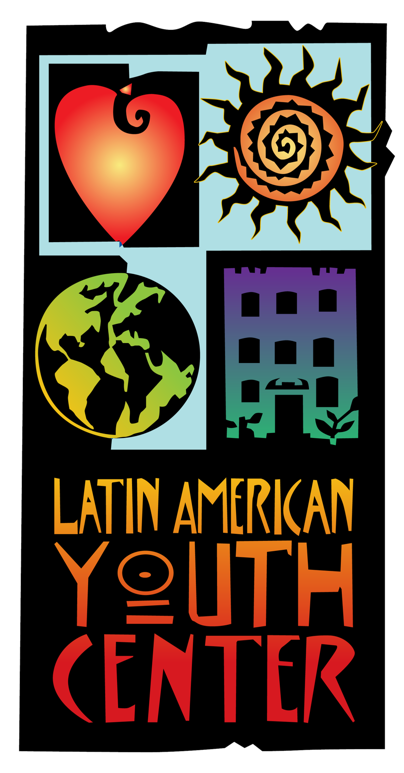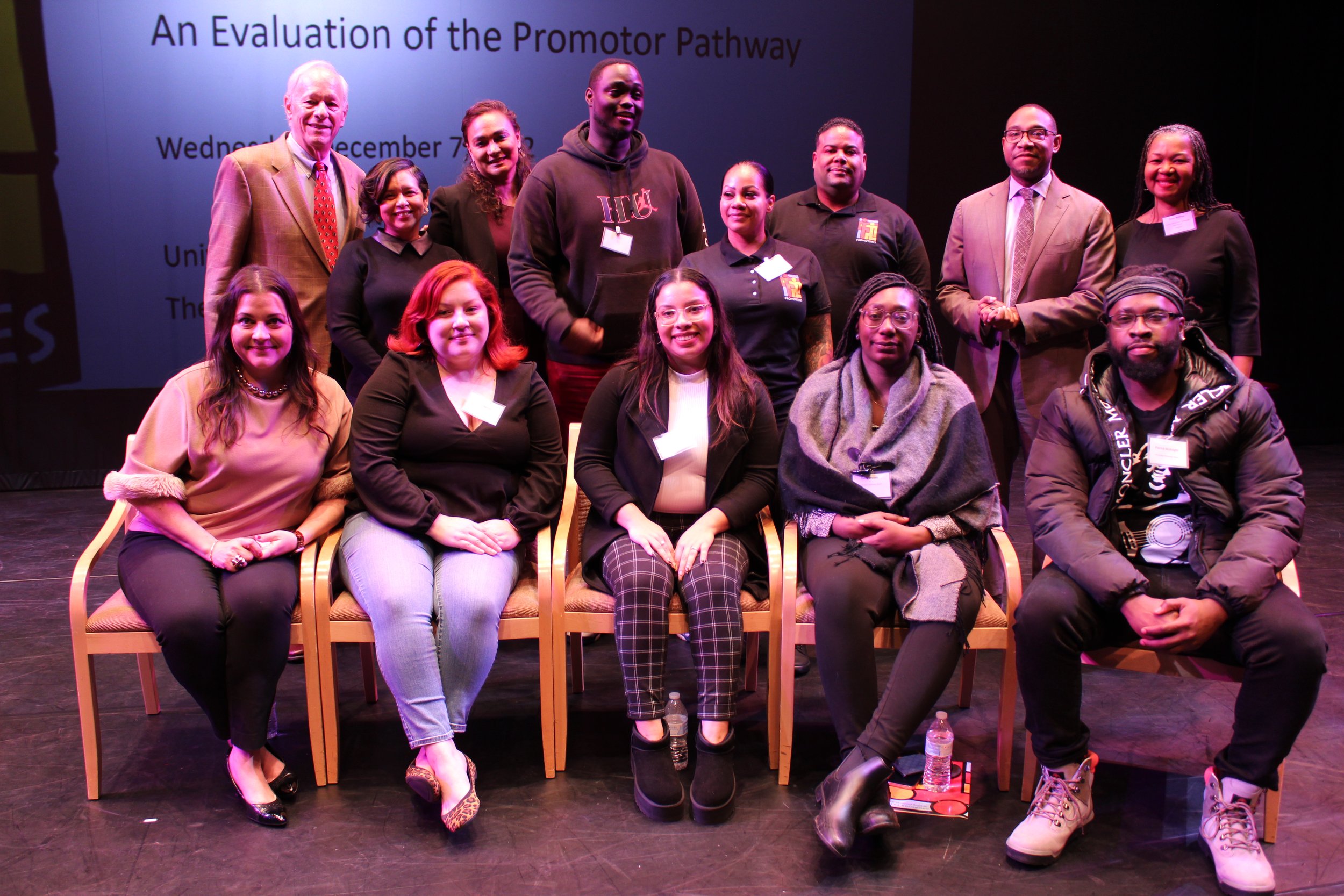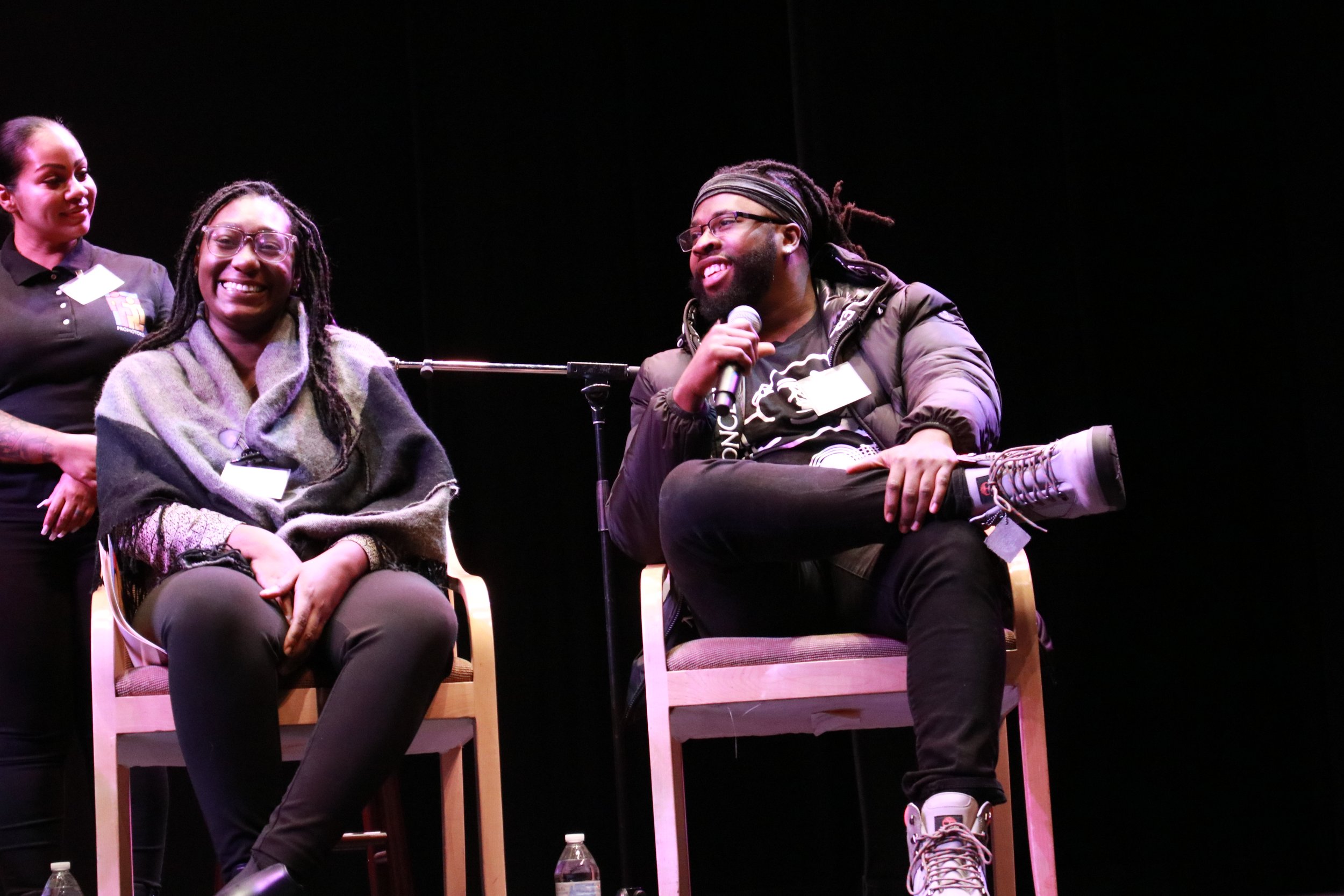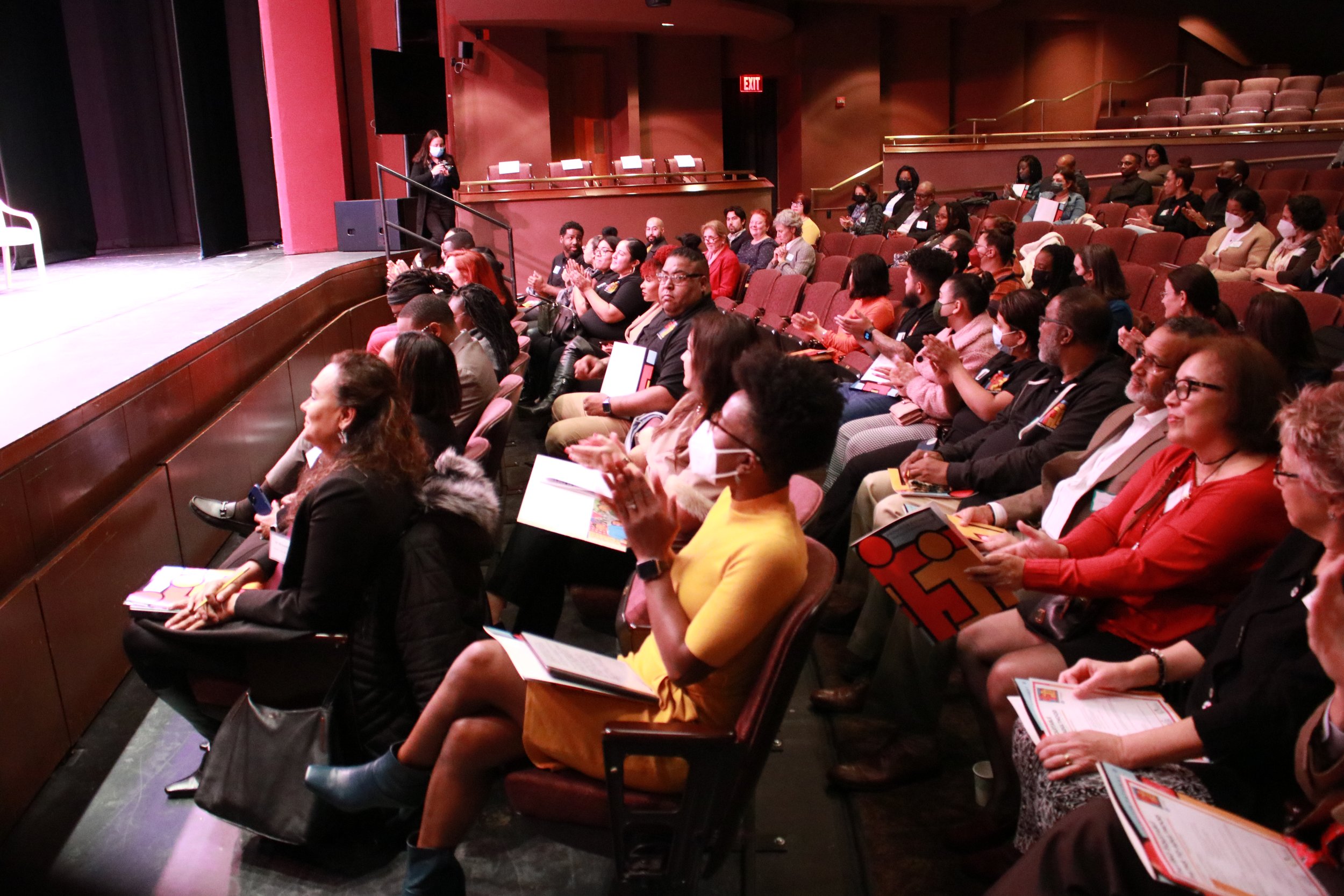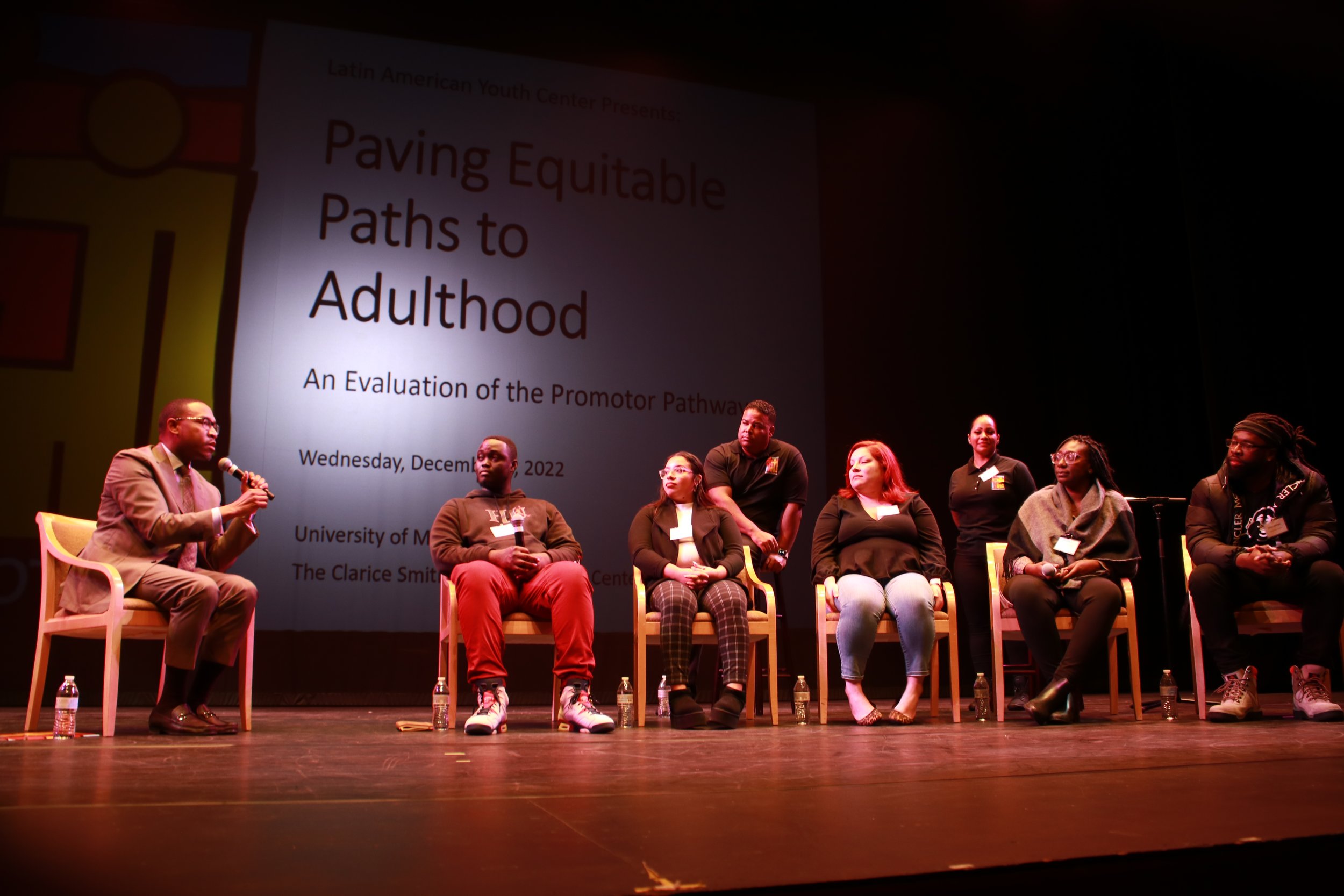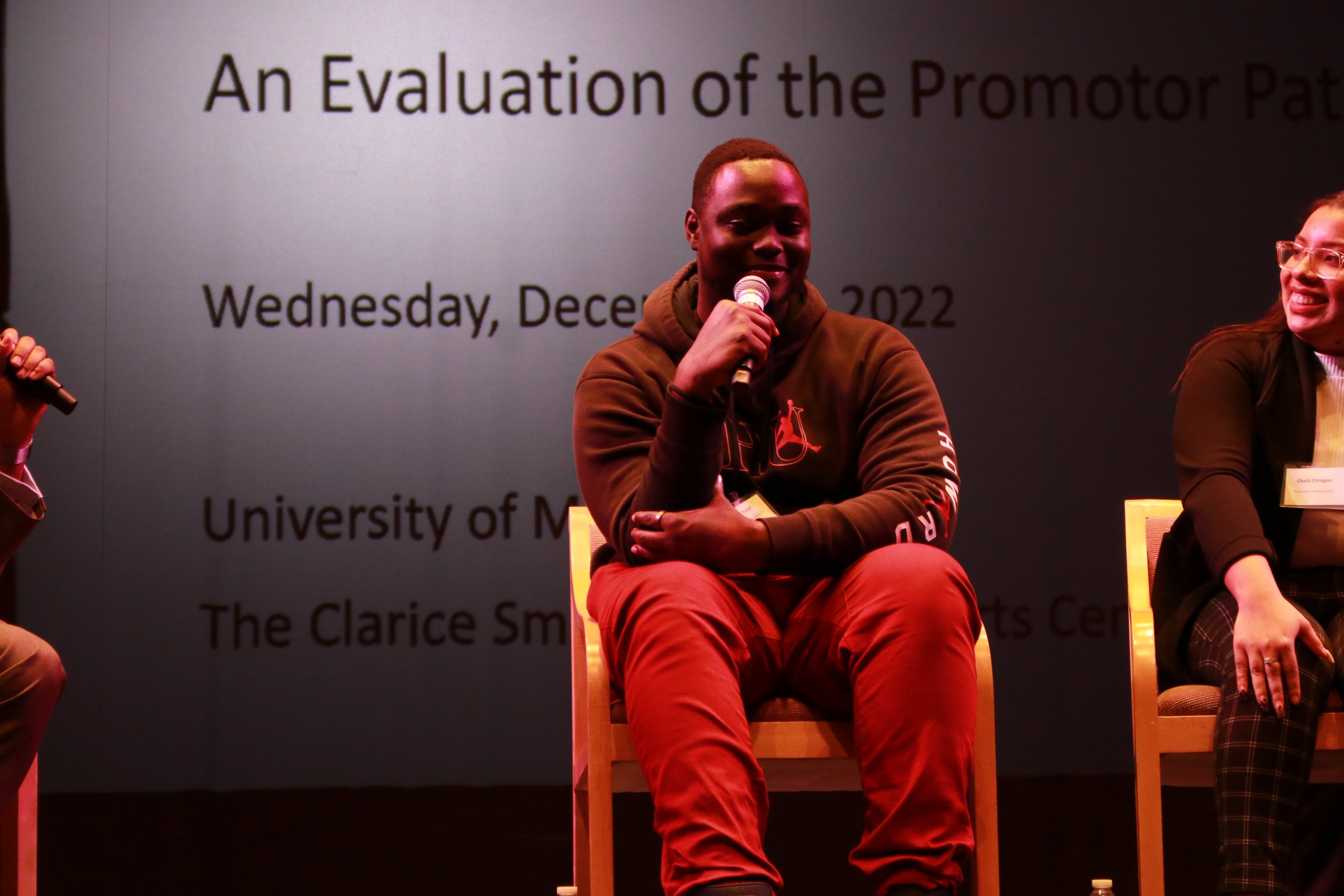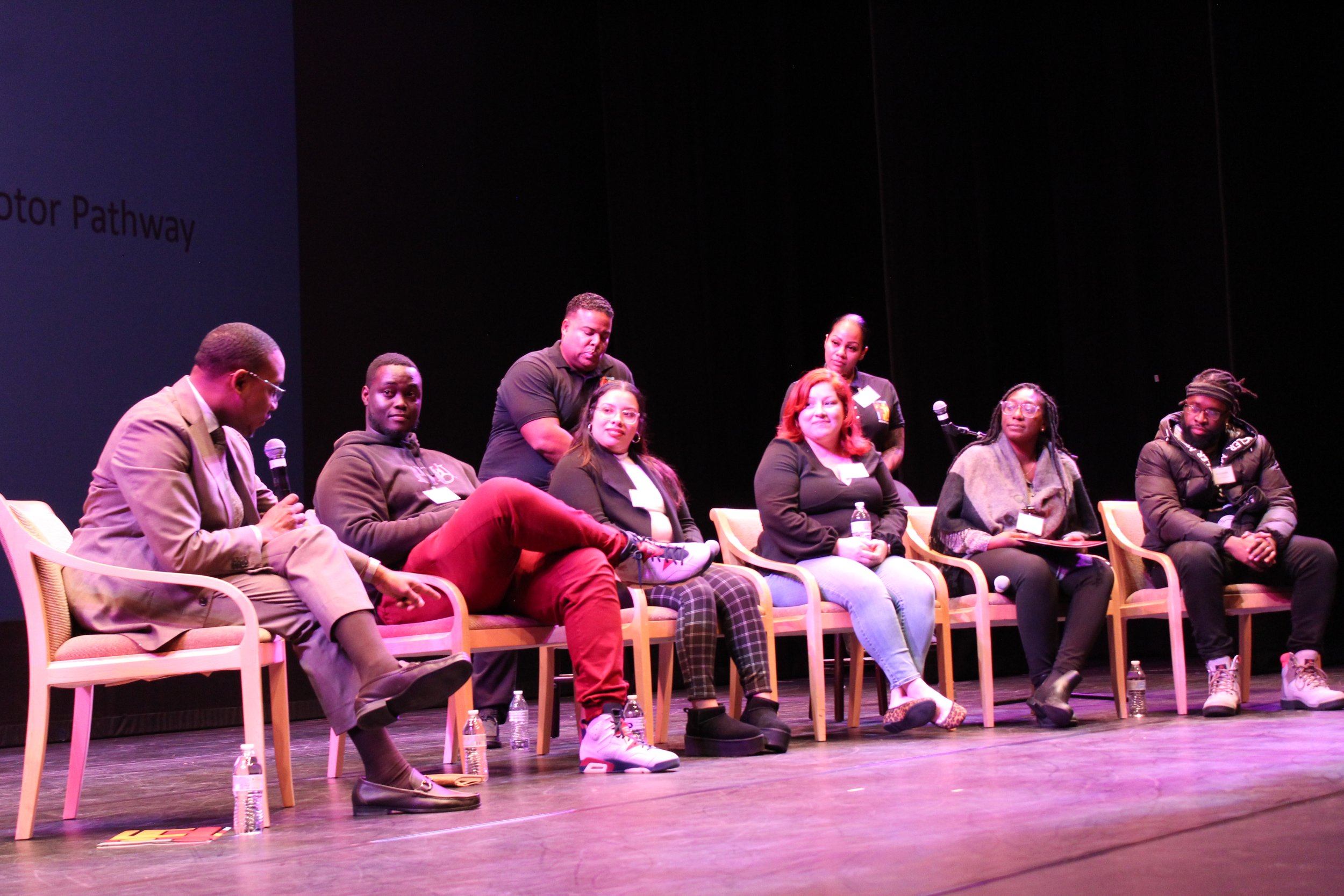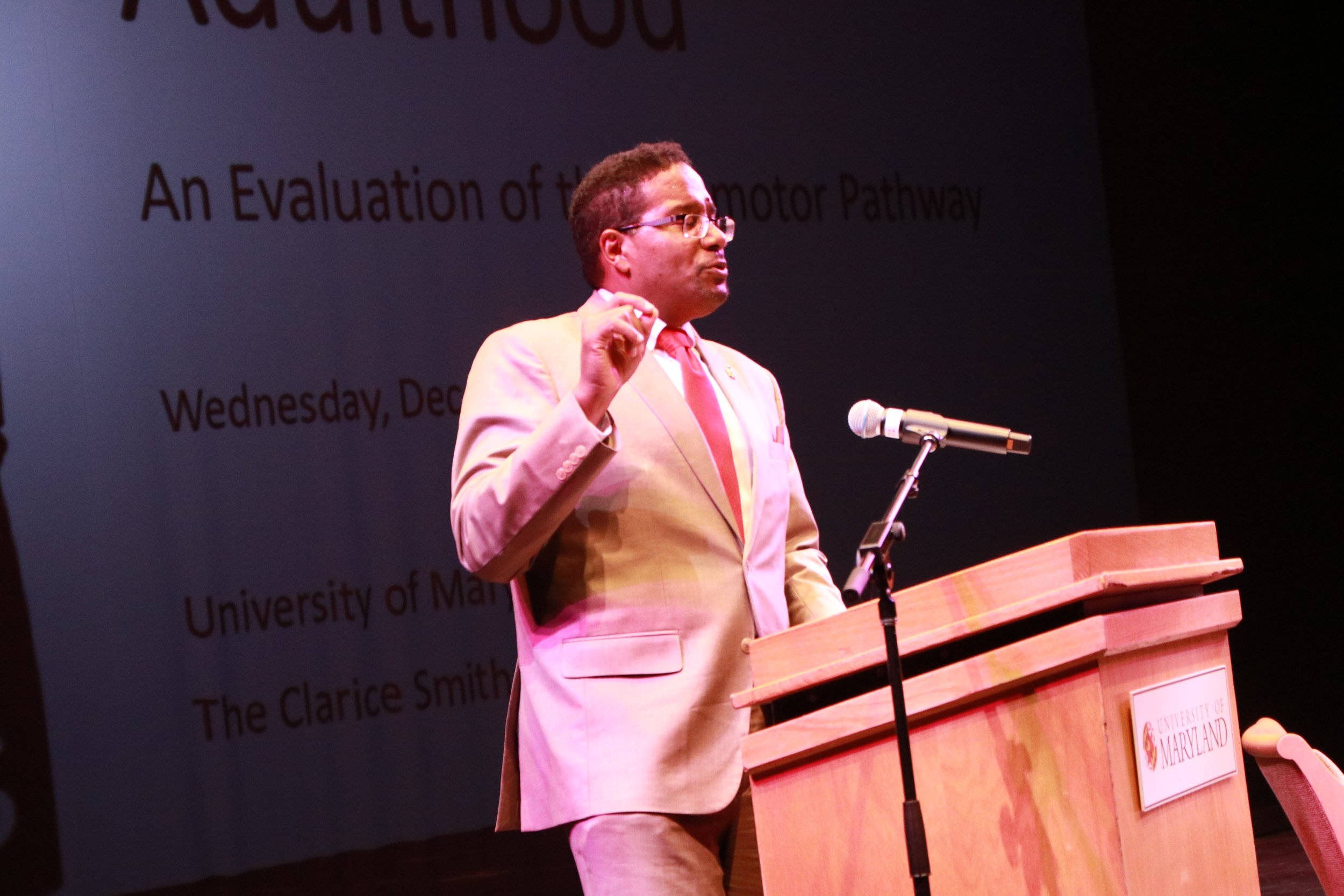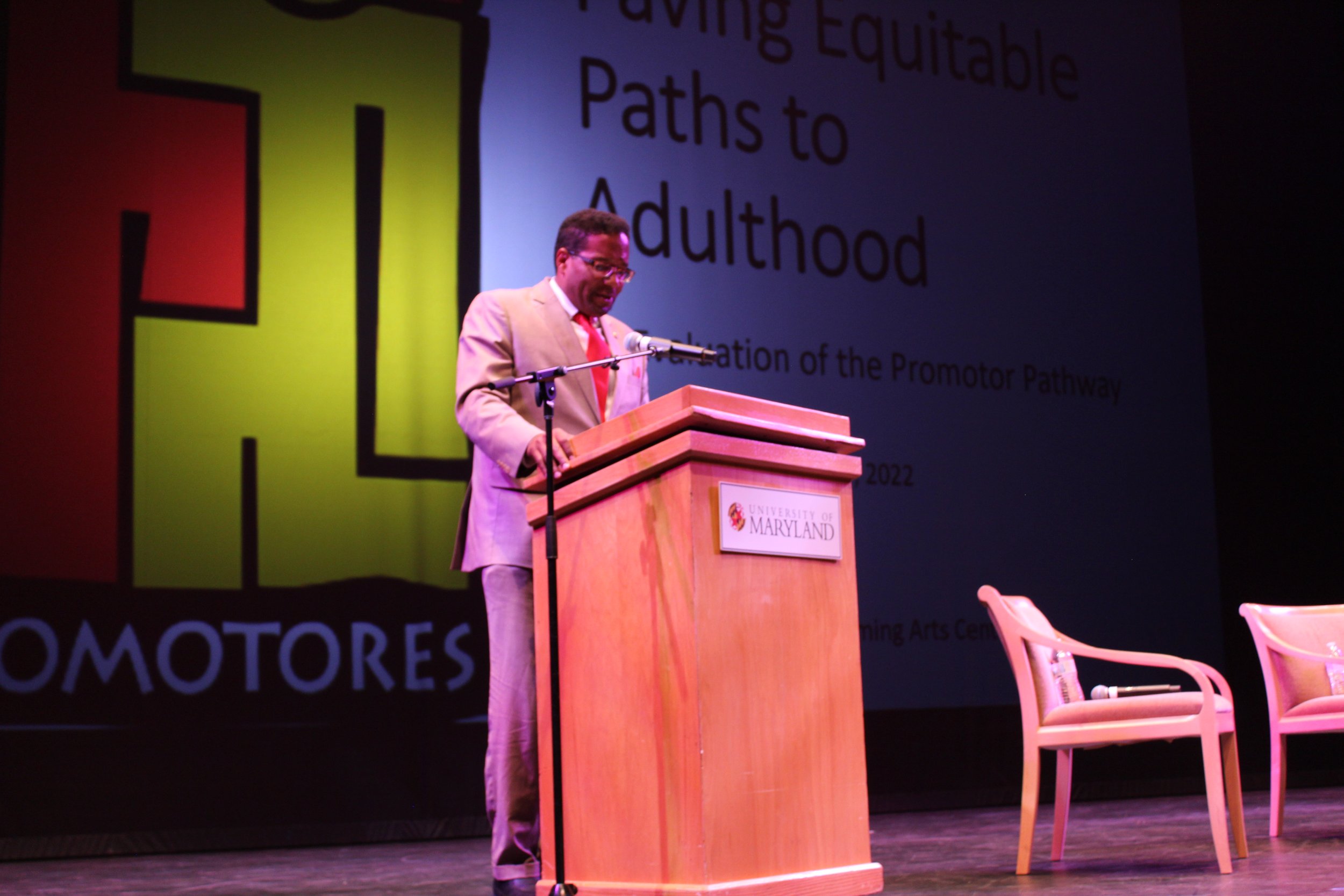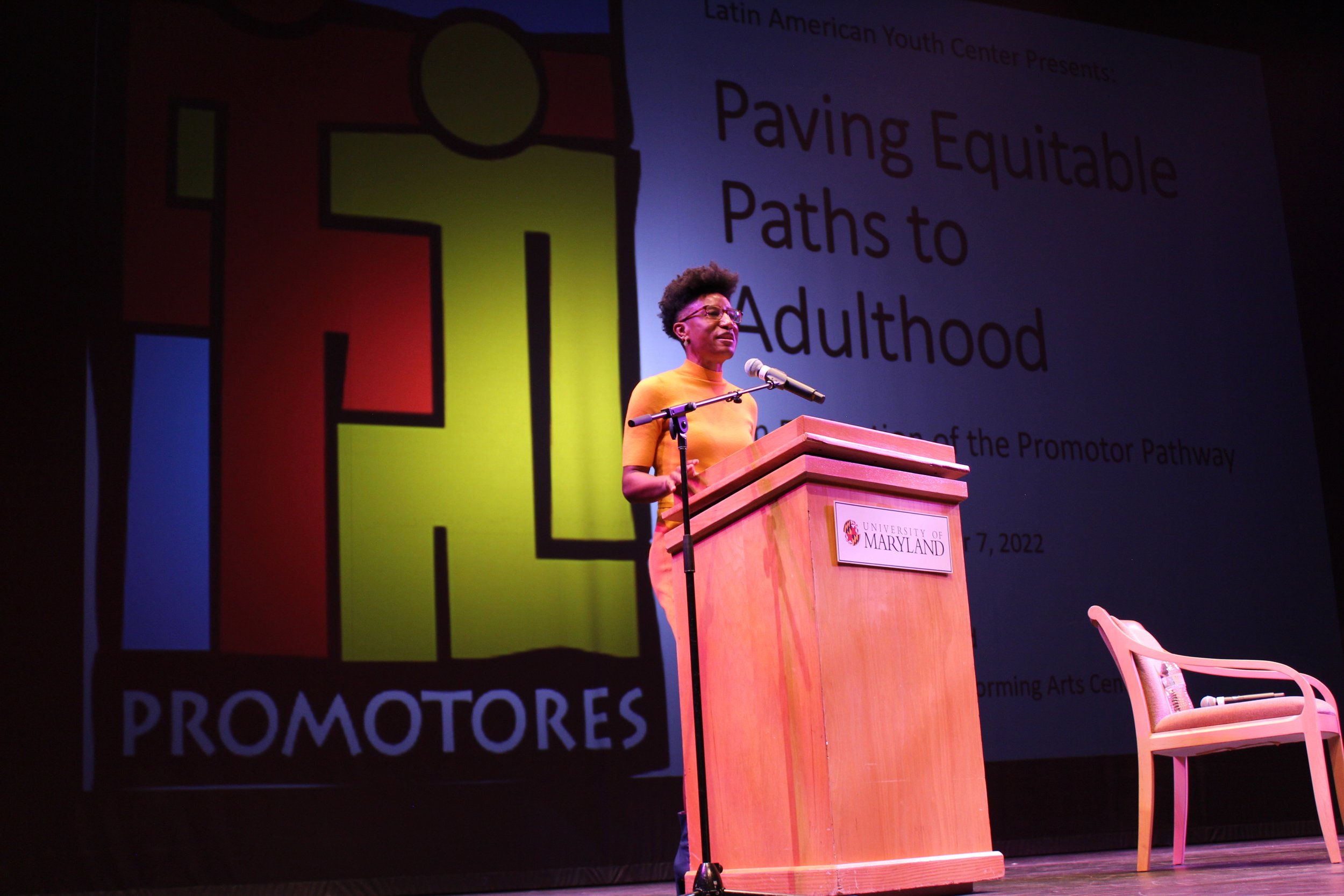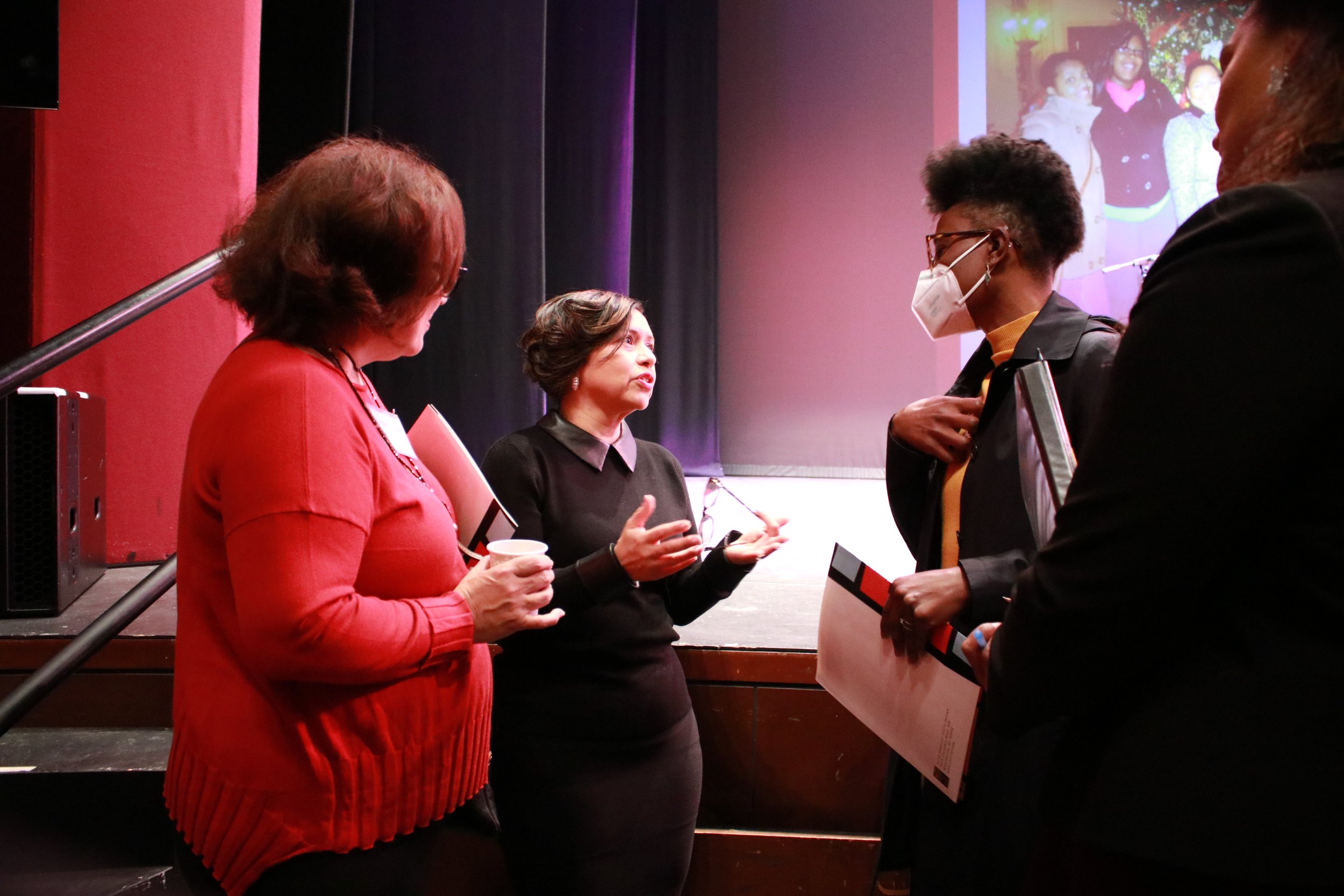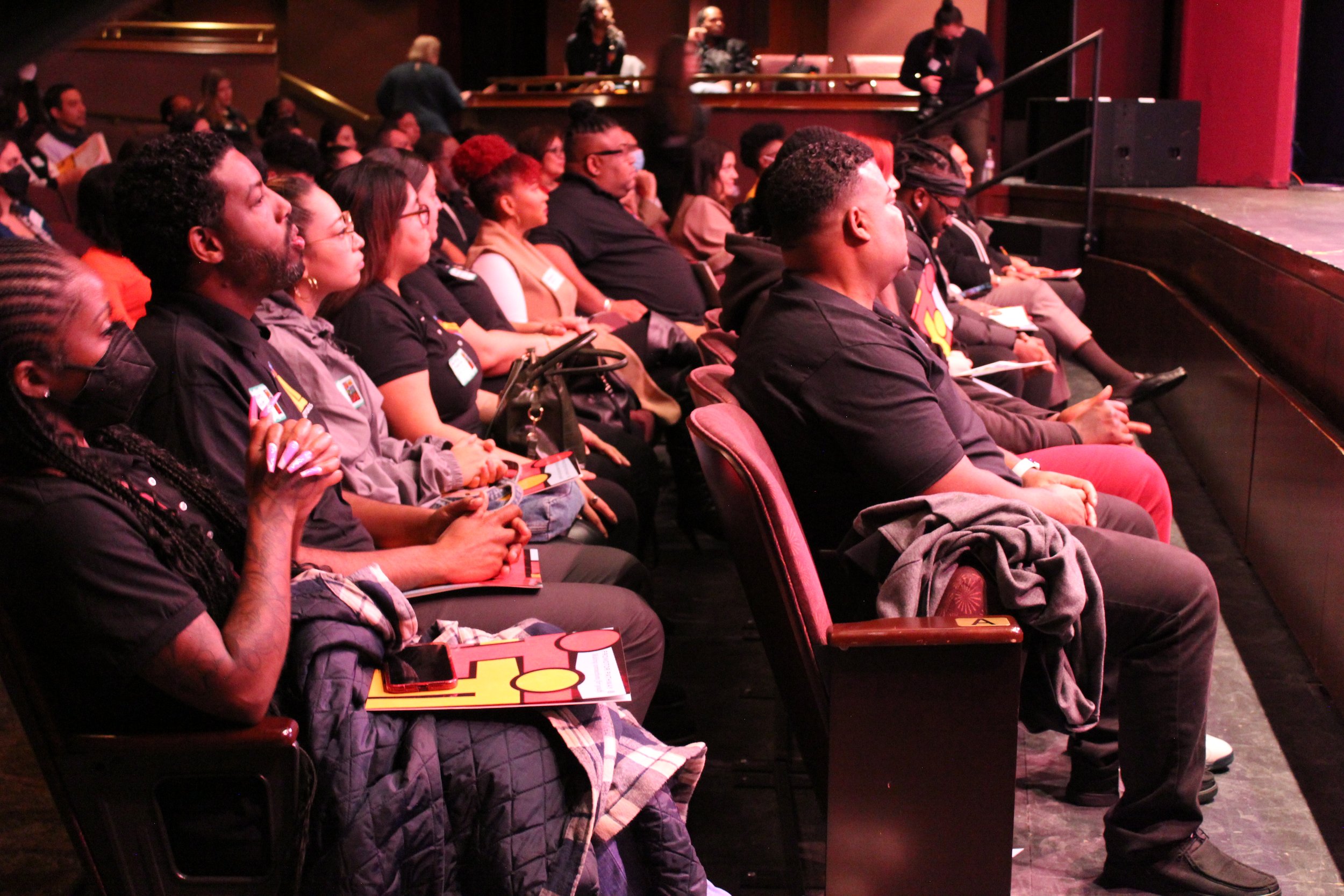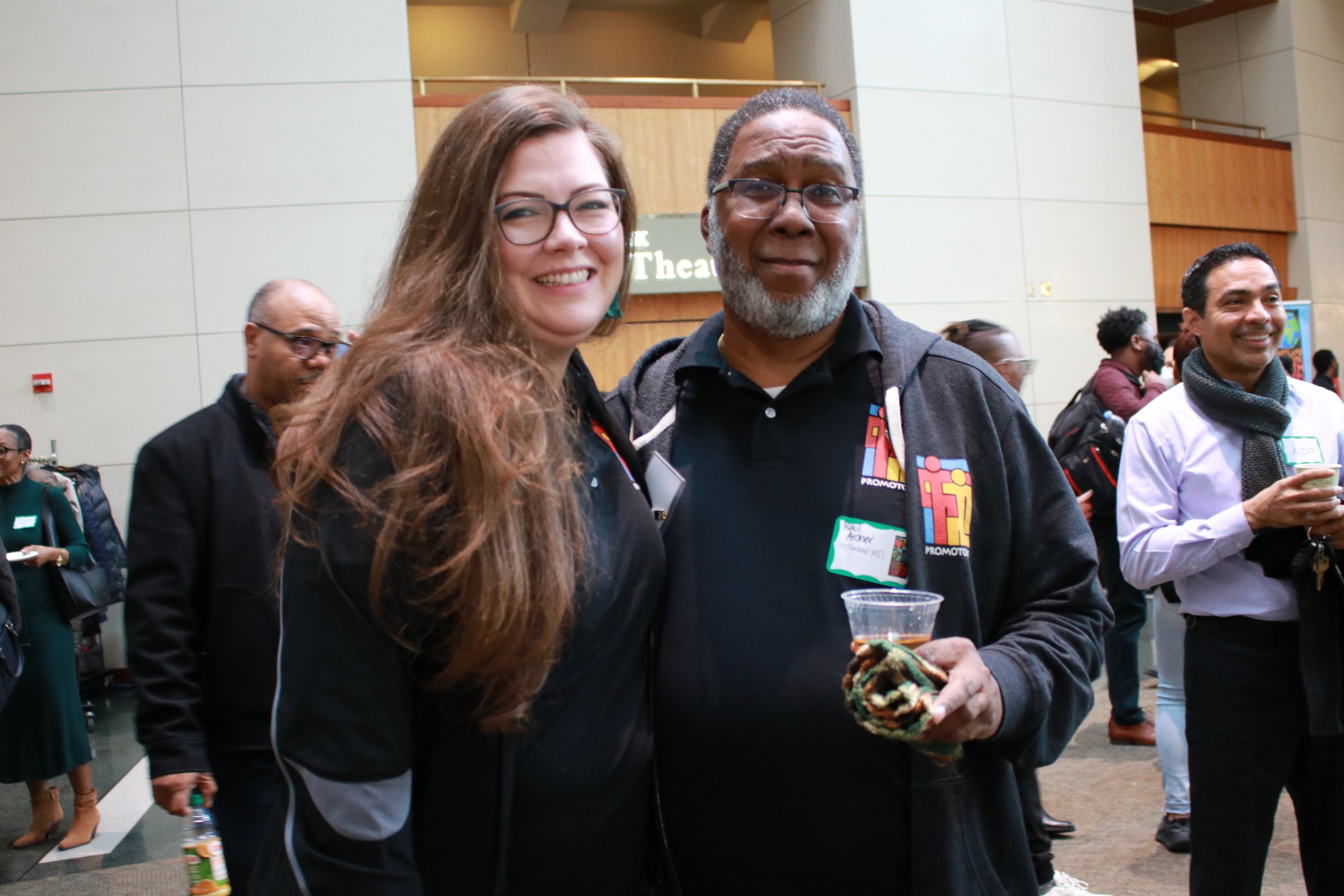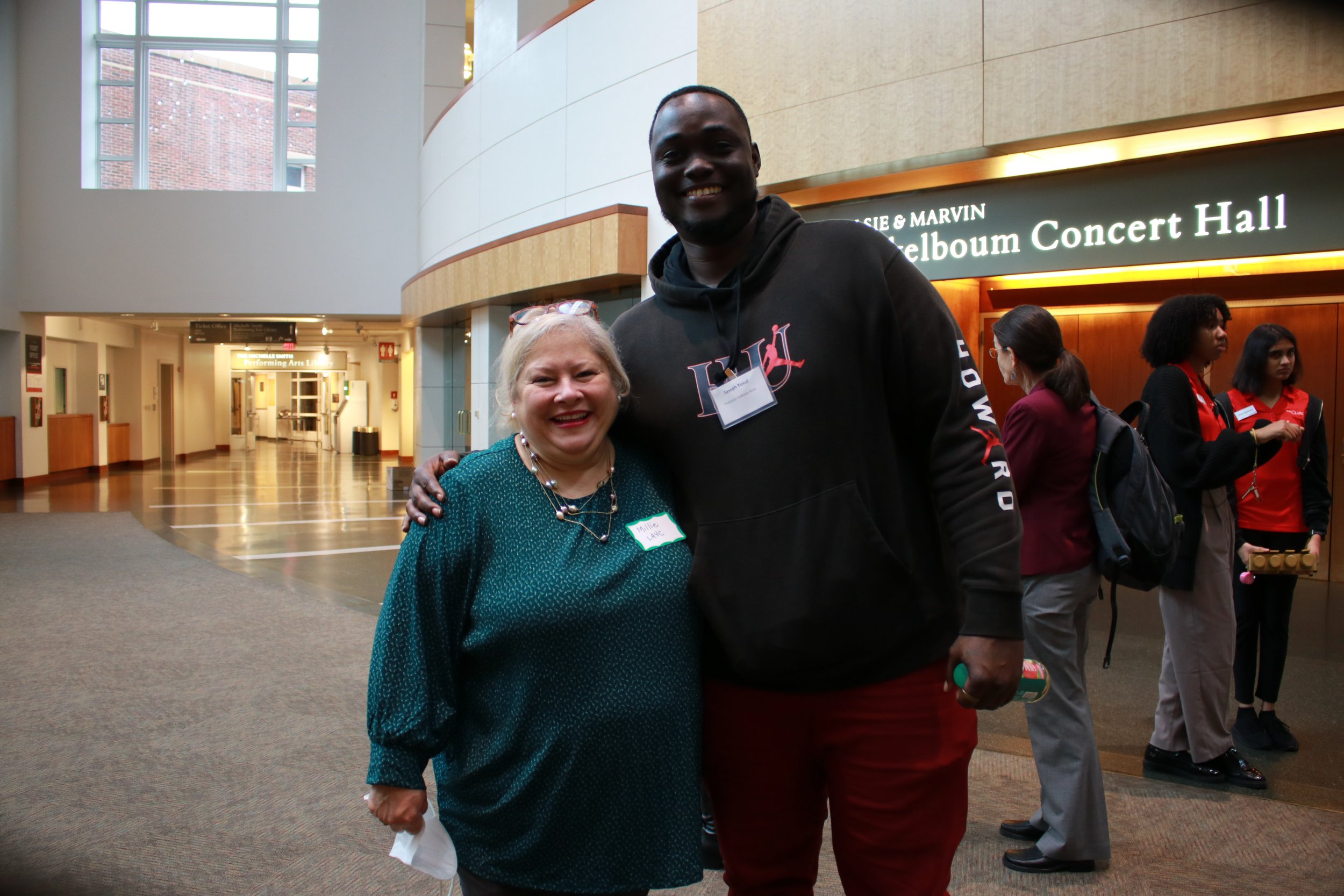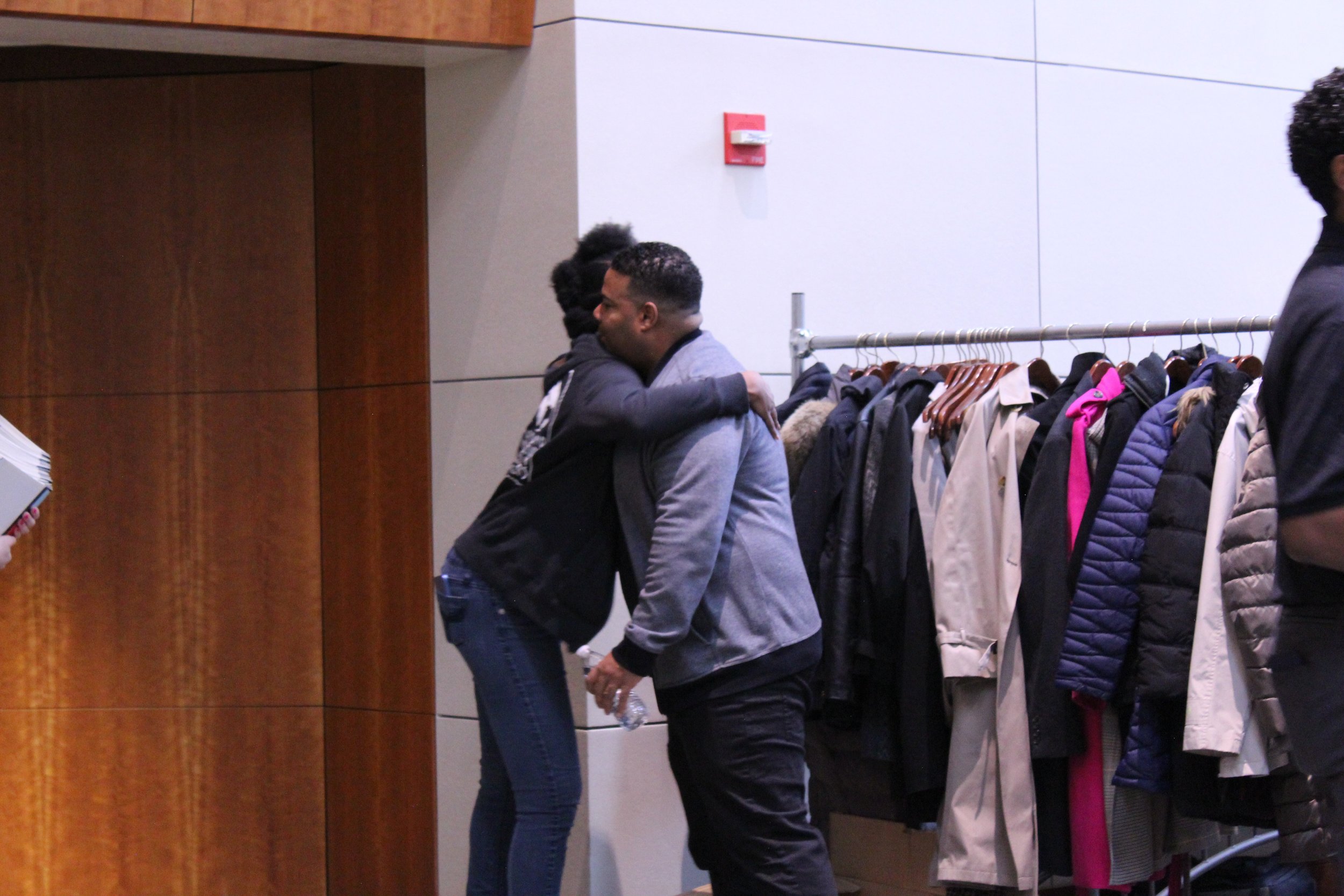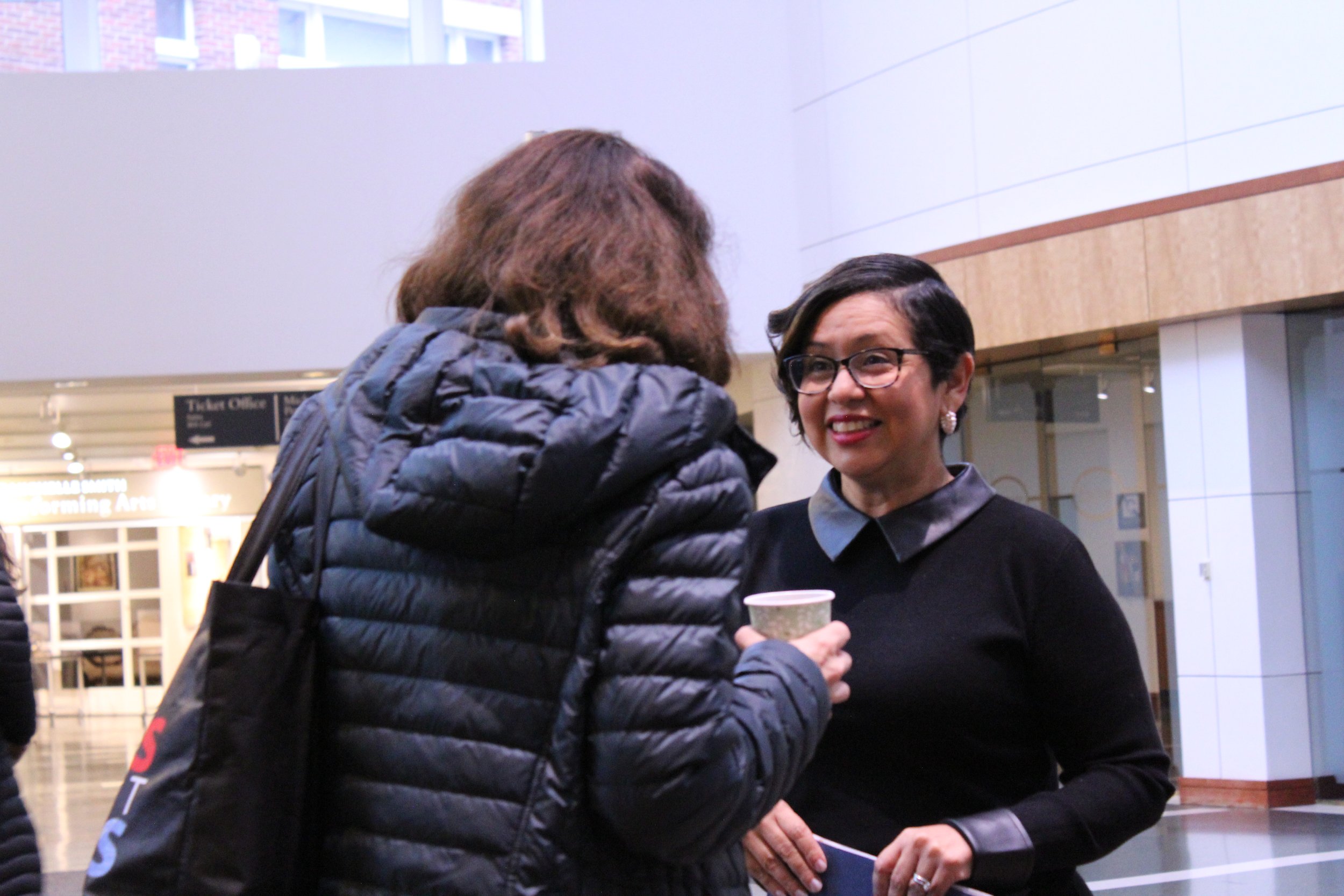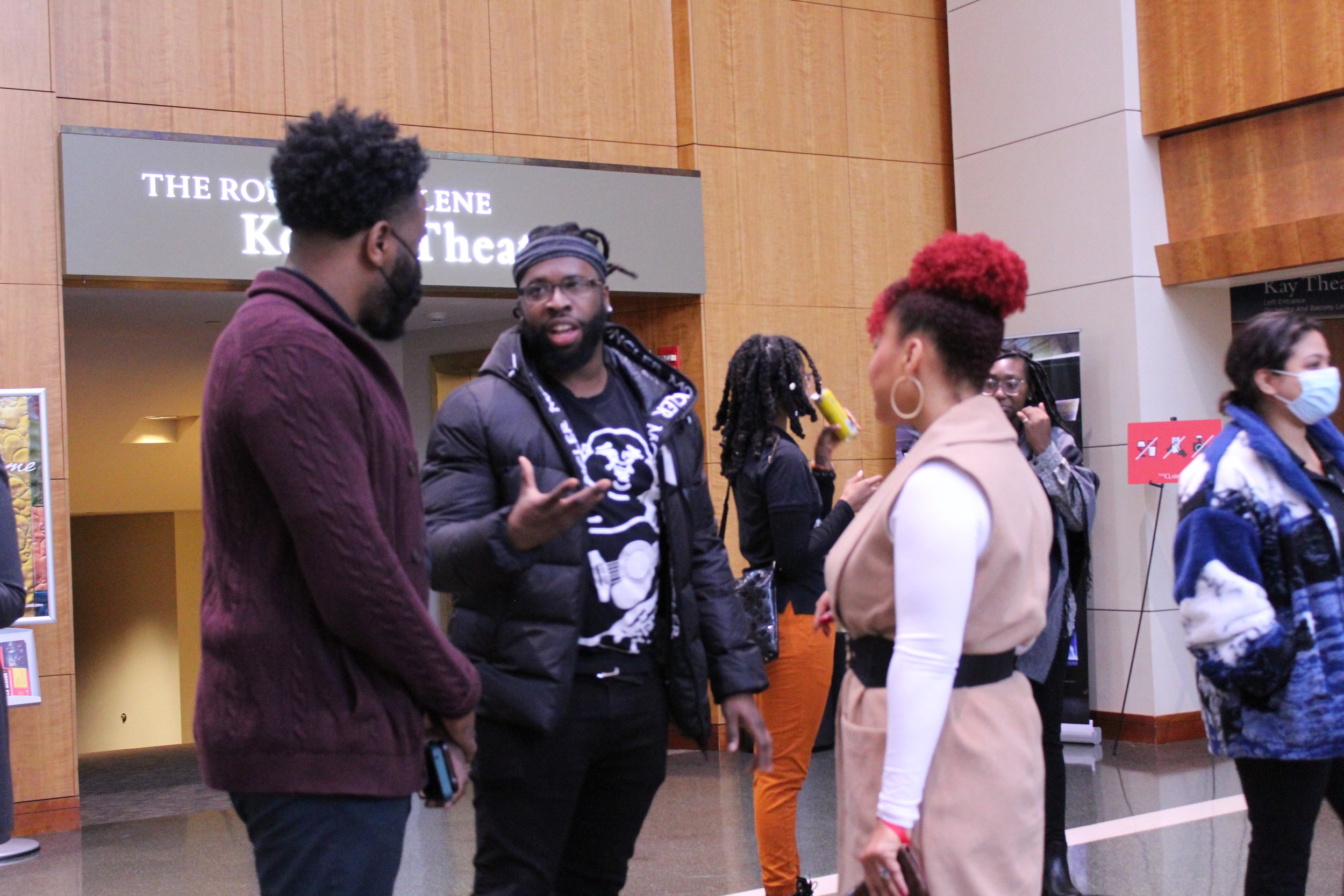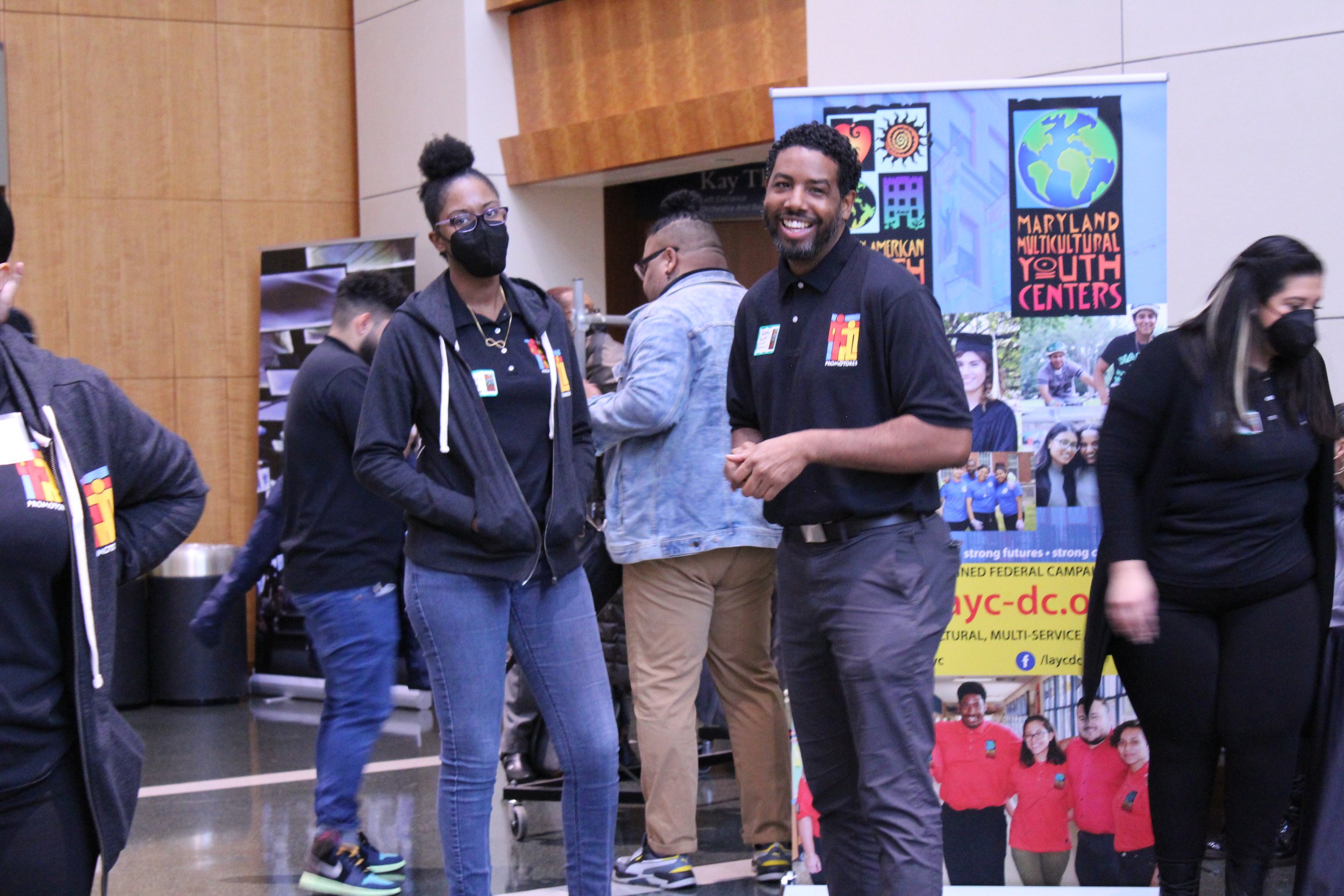Study Finds Promotor Pathway® Improved Outcomes in Education, Employment, and Earnings
A recent study of the Promotor Pathway®, flagship model of Latin American Youth Center (LAYC), has demonstrated an increase in long-term stability in the lives of youth participants through its client management intervention approach. Specifically, participants have shown marked improvements in areas of education, employment, job stability and earnings compared to their peers.
The study was conducted by phone survey with 186 former program participants and showed that after completing the Promotor Pathway, participating youth benefitted from a 6% increase in obtaining a high school diploma or GED, a 17% increase in job stability, and an average of $7,000 more per year earned when compared to the control group (youth outside the Promotor Pathway). Other notable benefits for Promotor participants were overall employment rates and hours worked per week, indicating better opportunities for self-determination and professional advancement.
Key results from study measuring certain life milestones Promotor participants against a control group.
The study, conducted from 2016 to 2019, is a follow up to a 2016 Urban Institute study and confirms the Promotor Pathway as an evidence-based program with a clear impact of the lives of participating youth. Most importantly, after nearly 10 years of consistent evaluation, these results allow us to peer directly into the future of our youth and understand how to tailor our programs accordingly.
The results of the remarkable study were analyzed by Dr. Shira Solomon and announced at “Paving Equitable Paths to Adulthood,” an evaluation event hosted by University of Maryland on December 7, 2022 (images below). Among the encouraging findings, speeches, and images, a panel of former youth participants and current Promotor staff revealed some of the most inspiring results of the Promotor Pathway. “If it wasn’t for the conversations I was having … with the Promotores and my support people, I feel like college never would have been an option,” said Joseph Yusuf, former Promotor participant and current Howard University staff member and graduate. Another former participant and current LAYC staff member, Cheili Obregon-Molina, plainly stated “I don’t know if I’d be here today without [the Promotores]. The panel was moderated by LAYC Board Member and former Senior Advisor to the Secretary of the Education Christian Rhodes.
“Being able to walk into that office and see my Promotor and have him beside me as I went through homelessness, as I struggled to get through college. If I did not have … my Promotor next to me, rooting me on in times when I wanted to give up… I honestly don’t know where I would be without [the Pathway].”
- Former participant Sierra Woods in response to the question
“Where would you be without the Promotor Pathway?”
The evaluation event commenced with a series of opening remarks from key leaders in the community, including Lupi Quinteros-Grady, LAYC President and CEO, Sol Espinoza PhD, Senior Associate of the Evidence Based Practice Group at the Annie E Casey Foundation, Dr. Helen Coley, Chief of School Support & School Leadership at Prince George’s County Public Schools, Tonia Wellons, President and CEO of the Greater Washington Community Foundation, Dr. Darryll J Pines, President of the University of Maryland, and Dr. Kimberly Griffin Professor & Dean of the College of Education at UMD.
LAYC offers its sincerest appreciation to the University of Maryland for hosting the Paving Equitable Pathways to Adulthood Event. The Annie E. Casey Foundation, Prince George’s County Public Schools, and the Greater Washington Community Foundation were also critical partners in backing the Promotor Pathway through support of the evaluation event.
Read the Executive Summary of the evaluation
Red the full Evaluation Report
